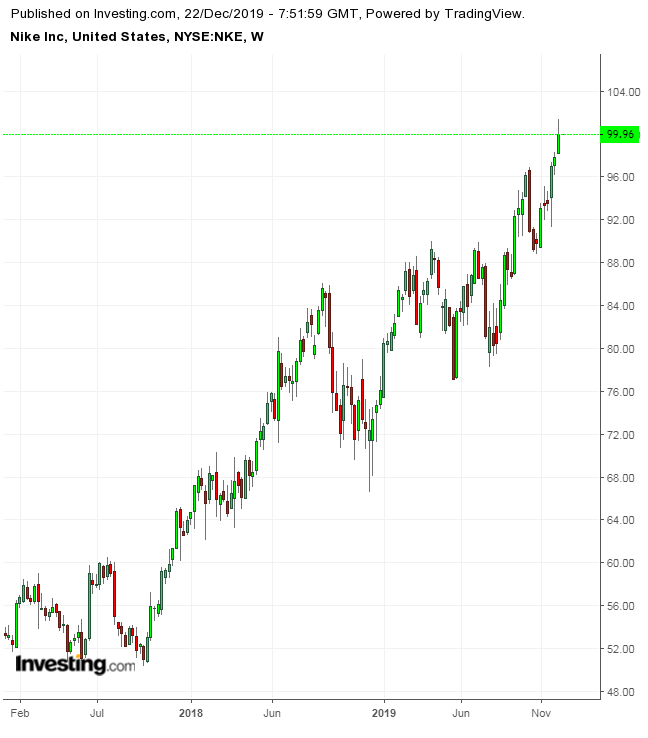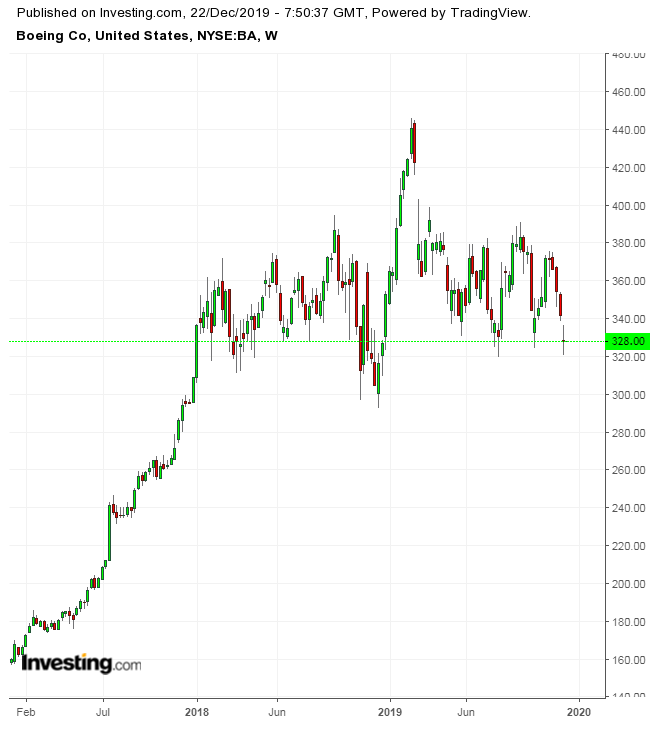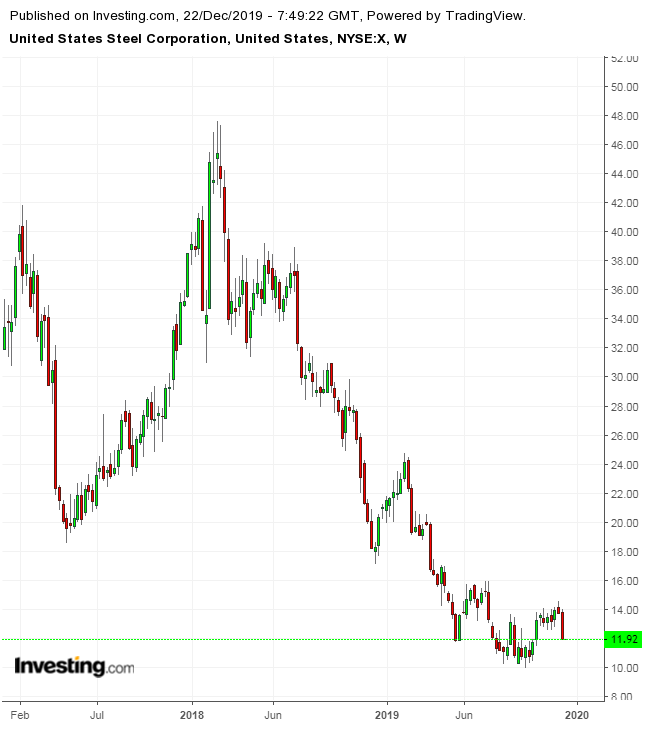Heading into the final week of 2019, bears are nowhere to be seen. The record setting, stock market rally this year has pushed the S&P 500 over 3,200 for the first time ever, putting the index on course to delivering the best annual return in as much as 22 years.
Credit for this remarkable turnaround, after a sharp correction in October, goes to the U.S. and China announcing a “phase one” trade deal that, though still not finalized, has reversed the negative sentiment about the global economy. Markets are now entering the new year with optimism that the global economy will perform more strongly and avoid a recession as economic data in the U.S. and globally grows more sound.
This week then, with trading likely to remain thin, we're focusing on these three stocks, in the aftermath of negative developments hitting each of their share prices:
1. Nike
Nike (NYSE:NKE) is likely to remain under pressure after the company failed to provide a much bigger upside surprise in its second quarter earnings report this past Friday.

Shares, which hit a record high of $101.4 earlier in the week, dropped as much as 2.3% after the earnings report and closed at $99.96 on Friday.
The athletic footwear and apparel manufacturer's profit in the fiscal second quarter rose to $0.70 a share, exceeding the $0.58 analyst consensus expectation. Shares of the sportswear giant have soared 33% in 2019, despite lingering worries about global trade and economic slowdown. This performance suggests the company is doing many things right.
“Our brand is connecting deeply with consumers everywhere,” Chief Executive Officer Mark Parker, who will step down next month, said on a conference call. “Our innovation is helping athletes prove that there are no limits. We’re challenging the conventions of retail at every term.”
If Nike stock weakens from these levels, we see a buying opportunity. The company has a history of performing better than the market expects. Nike is forecasting revenue for the third quarter, ending in February, to grow by a high single-digit percentage, and reiterated the same expectation for the full year. The company anticipates third quarter, gross margins to remain flat year-over-year, at around 45.1%.
2. Boeing
The negative news flow for the world’s largest airplane manufacturer, Boeing (NYSE:BA), continued last week. There is, therefore, a likelihood that its shares will come under more pressure in the final trading week of 2019.
On Friday, reports surfaced that Boeing botched the first demonstration flight of its long-awaited Starliner space capsule. This followed media reports earlier in the week that the Chicago-based aerospace company said it would suspend sourcing major 737 MAX parts from its biggest supplier.
The high-profile failure of the Starliner to reach the correct orbit under its own power—scuttling the capsule’s planned docking with the international space station—was a fresh blow to Boeing as well as to U.S. efforts to return astronauts to space using a domestic vehicle, according to a report in the Wall Street Journal. It was also the latest blow to Boeing's reputation, after the corporation failed to win approval from regulators to return its highly profitable MAX 737 jetliner to the skies again after two fatal crashes this year.

Boeing shares have lost about a third of their value since March, when the 737 MAX faced a global grounding after the second crash of the jetliner, an Ethiopian Airlines flight, which followed the October 2018 Lion Air crash. The stock has plunged about 12% in the past month alone. Shares fell 1.68% on Friday closing at $328.
3. United States Steel
U.S. Steel (NYSE:X) shares took a dive on Friday, dropping about 11%, after the company warned that it will report a fourth quarter 2019 loss of $1.15 a share, well below analyst expectations. The company, which reports on Thursday, Jan. 30, 2020, after the close, also plans to suspend share repurchases while slashing its dividend by 80%—from $0.05 per quarter, to just $0.01 a share.

The Pittsburgh-based steel producer is facing harsh scrutiny from investors after releasing a series of negative announcements this week that included the idling of its giant plant outside Detroit and plans to lay off as many as 1,545 workers in Michigan. U.S. Steel is facing an uncertain future amid concern over the company’s ability to supply steel to its top automotive clients.
The company’s failure to gain an advantage from U.S. President Donald Trump’s imposition of tariffs on imported steel two years ago is also prompting investors to shun the stock. Shares closed at $11.92 on Friday.
After the current, sharp sell-off, and given the company’s weak position in the industry, investors are best served by continuing to avoid this basic materials sector name.
